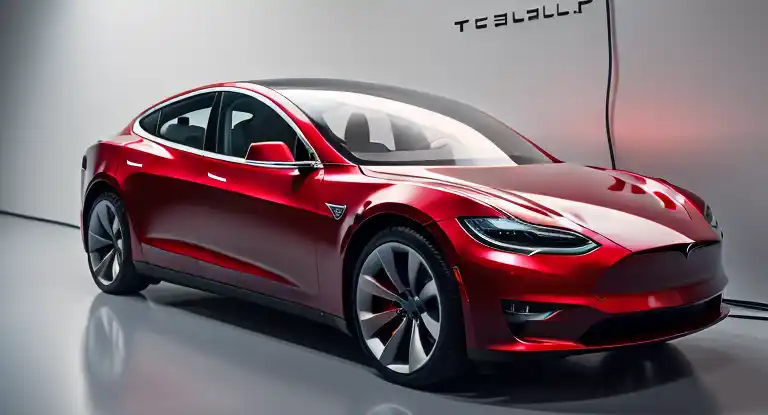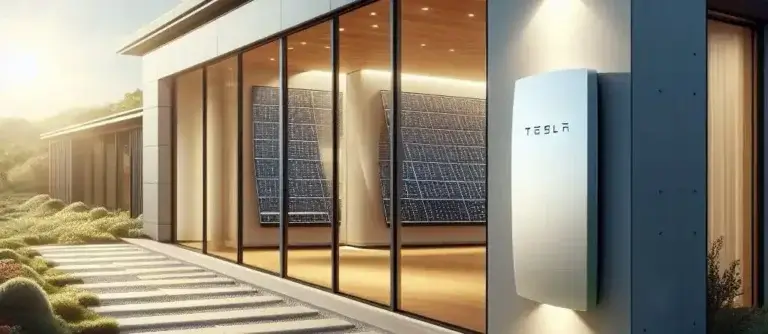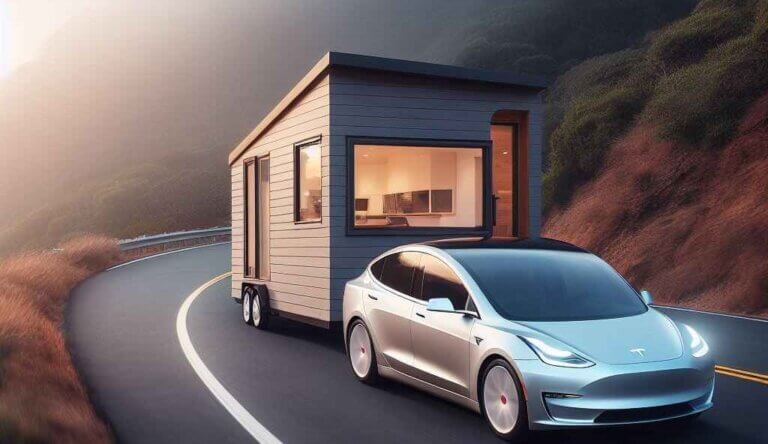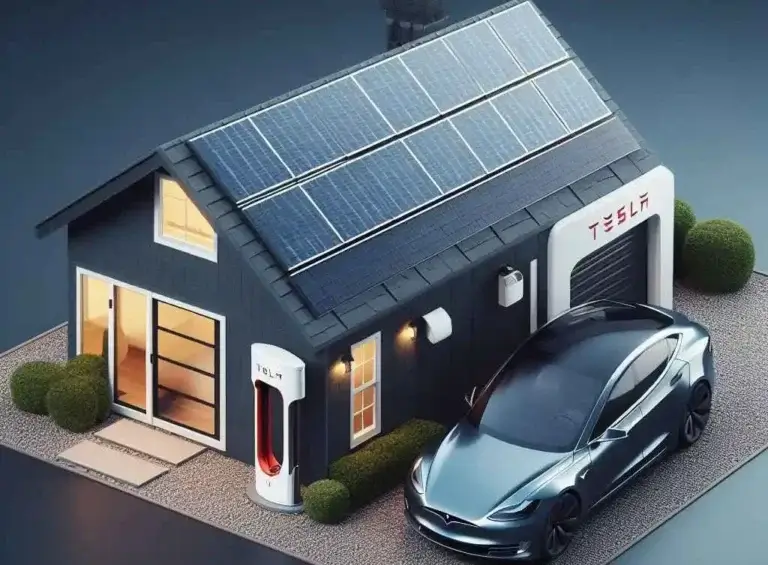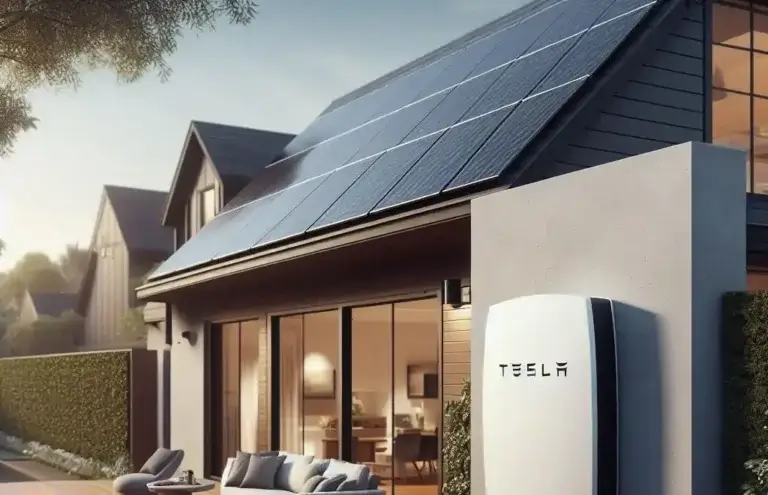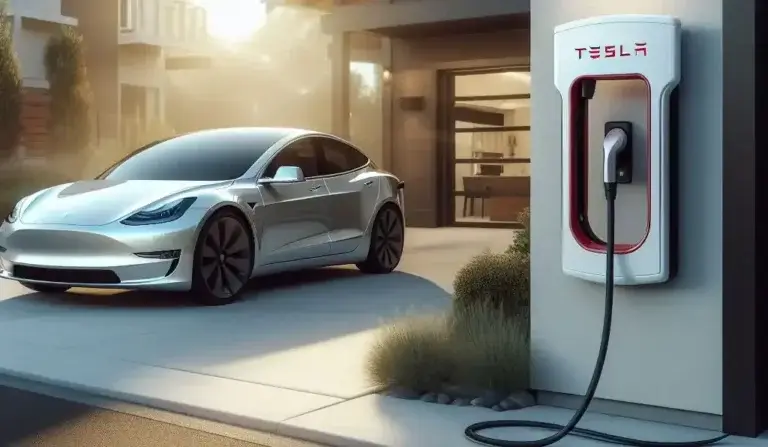Tesla Battery Charge Time 11.5 to 11.8h at 220V
Tesla electric vehicles are becoming increasingly popular thanks to their long range, technology features, and convenient charging options. One question potential Tesla owners often ask is “How long does it take to fully charge a Tesla battery?” In this comprehensive guide, we’ll cover everything you need to know about Tesla Battery Charge Time 11.5 to 11.8h at 220V, including:
- Overview of Tesla models and battery sizes
- Types of Tesla chargers and charging speeds
- Factors that affect charge times
- Charging tips to optimize charge times
When charging your Tesla at home with a 220V outlet, you can expect a full charge to take between 11.5 to 11.8 hours depending on the model and battery size. Read on for more details.
Table of Contents
Tesla Models and Battery Sizes
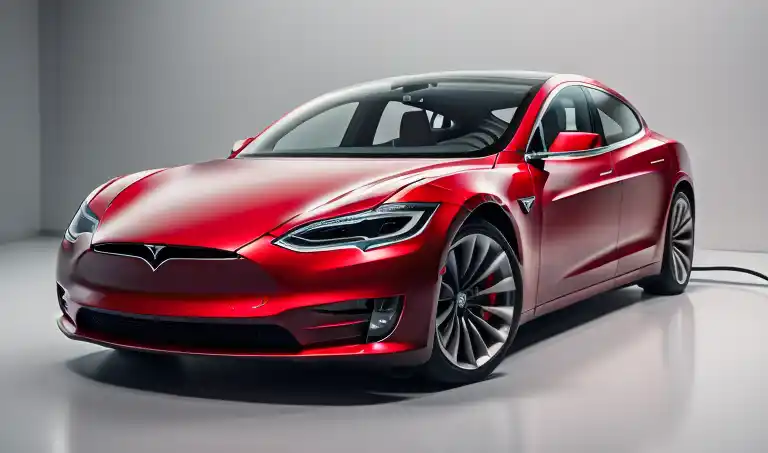
Tesla currently offers three models – the Model 3, Model S, and Model X. Here is a quick overview of the battery sizes for each model:
Tesla Model 3
- Standard Range Plus: 50 kWh battery
- Long Range: 82 kWh battery
- Performance: 82 kWh battery
Tesla Model S
- Long Range: 100 kWh battery
- Plaid: 100 kWh battery
Tesla Model X
- Long Range: 100 kWh battery
- Plaid: 100 kWh battery
As you can see, the battery capacities range from 50 kWh on the low end for the Model 3 Standard Range Plus, to 100 kWh for the long-range Model S and Model X variants. The battery size is a major factor that determines charging speeds and charge times.
Types of Tesla Chargers and Charge Speeds
There are several types of Tesla chargers available with different charging speeds:
- Mobile Connector (included with the car) – up to 44 miles of range per hour on 240V
- Wall Connector – up to 44 miles per hour on 240V
- Supercharger – up to 1000 miles per hour on 250kW chargers
- Destination Charging – varies by location, typically 30-60 miles per hour
For charging at home, most Tesla owners use the mobile connector or Wall Connector with a 240V outlet which provides between 30-44 miles of range replenished per hour of charging. This translates to a full charge time of 11.5 to 11.8 hours for the 100 kWh Long Range Model S and Model X battery.
The fastest charging option is the Tesla Supercharger network, which can add up to 200 miles in 15 minutes. However, Supercharger access requires paying a fee and stations are not available for home charging.
Factors Affecting Charge Times
Several factors can impact how long it takes to fully charge your Tesla battery:
- Battery size – The kWh battery capacity affects charge times. The larger the battery, the longer it takes to charge fully.
- Charger type – Faster chargers provide more power and reduce charge times. Home charging is slower than Superchargers.
- Power output – Higher charger power (measured in kW) yields faster charging.
- Ambient temperature – Very cold weather can increase charge times.
- Battery condition – As batteries degrade over time, charge rates may slow down.
Taking these variables into account allows you to estimate Tesla charging times for your specific model and home charging setup.
Tips for Faster Home Charging
Here are some tips to help optimize charge times when charging your Tesla at home:
- Use 240V outlet – 240V AC provides almost twice as much power as a standard 120V outlet, enabling significantly faster charging.
- Higher amperage – Have an electrician install the highest amperage circuit possible up to 100A. More amps equate to faster charging.
- Schedule charging – Set charging to start during off-peak electricity rate hours to save money when charging.
- Precondition battery – Warm or cool the battery while plugged in to allow faster charging once it starts.
- Upgrade wall connector – If charging a 100 kWh battery, consider upgrading to a Wall Connector for faster 240V charging up to 44 mph.
Tesla Battery Charge Time 11.5 to 11.8h at 220V for All Tesla Models
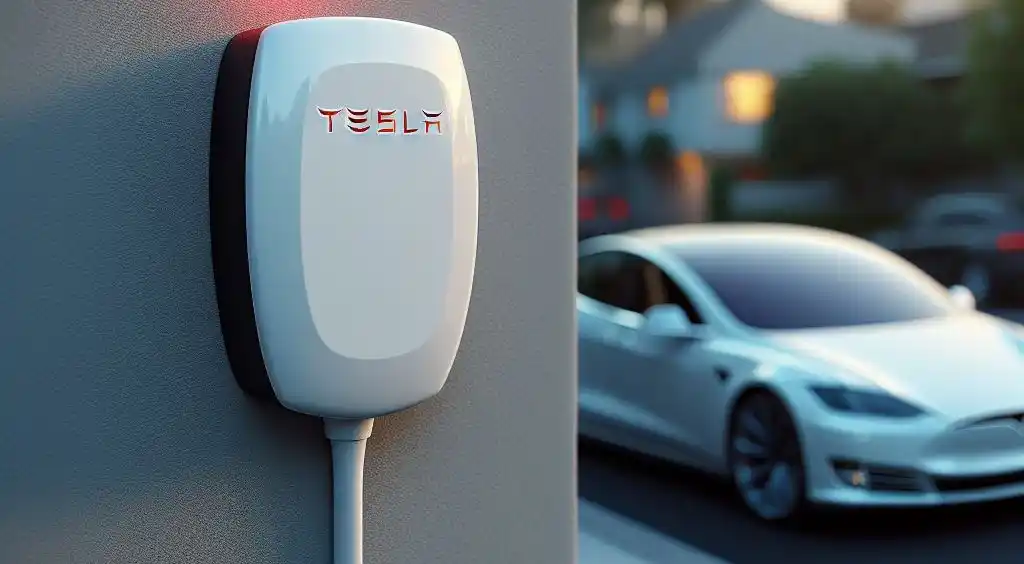
Tesla battery charger time 11.5 to 11.8h at 220V using all the Tesla car models available till this date using Tesla Mobile Charger, Gen2 Wall Connector, and Gen3 Wall Connector is given below in a detailed table.
| Tesla Model (Year) | Battery Capacity (kWh) | 10% to 80% Charge Time (Mobile Connector, 7.2kW) | 10% to 80% Charge Time (Gen2 Wall Connector, 11.5kW) | 10% to 80% Charge Time (Gen3 Wall Connector, 19.2kW) |
|---|---|---|---|---|
| Model S (2024) | 108 | 10.4 – 11.0 hours | 8.4 – 8.9 hours | 5.5 – 6.0 hours |
| Model S (2023) | 108 | 10.4 – 11.0 hours | 8.4 – 8.9 hours | 5.5 – 6.0 hours |
| Model S (2022) | 108 | 10.4 – 11.0 hours | 8.4 – 8.9 hours | 5.5 – 6.0 hours |
| Model X (2024) | 108 | 10.4 – 11.0 hours | 8.4 – 8.9 hours | 5.5 – 6.0 hours |
| Model X (2023) | 108 | 10.4 – 11.0 hours | 8.4 – 8.9 hours | 5.5 – 6.0 hours |
| Model X (2022) | 108 | 10.4 – 11.0 hours | 8.4 – 8.9 hours | 5.5 – 6.0 hours |
| Model 3 (2024) | 75 | 6.9 – 7.3 hours | 5.6 – 6.0 hours | 3.7 – 4.0 hours |
| Model 3 (2023) | 75 | 6.9 – 7.3 hours | 5.6 – 6.0 hours | 3.7 – 4.0 hours |
| Model 3 (2022) | 75 | 6.9 – 7.3 hours | 5.6 – 6.0 hours | 3.7 – 4.0 hours |
| Model 3 Performance (2024) | 82 | 7.5 – 7.9 hours | 6.1 – 6.5 hours | 4.1 – 4.4 hours |
| Model 3 Performance (2023) | 82 | 7.5 – 7.9 hours | 6.1 – 6.5 hours | 4.1 – 4.4 hours |
| Model 3 Performance (2022) | 82 | 7.5 – 7.9 hours | 6.1 – 6.5 hours | 4.1 – 4.4 hours |
| Model Y (2024) | 75 | 6.9 – 7.3 hours | 5.6 – 6.0 hours | 3.7 – 4.0 hours |
| Model Y (2023) | 75 | 6.9 – 7.3 hours | 5.6 – 6.0 hours | 3.7 – 4.0 hours |
| Model Y (2022) | 75 | 6.9 – 7.3 hours | 5.6 – 6.0 hours | 3.7 – 4.0 hours |
| Model Y Performance (2024) | 82 | 7.5 – 7.9 hours | 6.1 – 6.5 hours | 4.1 – 4.4 hours |
| Model Y Performance (2023) | 82 | 7.5 – 7.9 hours | 6.1 – 6.5 hours | 4.1 – 4.4 hours |
| Model Y Performance (2022) | 82 | 7.5 – 7.9 hours | 6.1 – 6.5 hours | 4.1 – 4.4 hours |
Average Tesla Charge Times at 220V
Based on typical 220-240V home charging, here are the estimated full charge times for different Tesla models and configurations:
| Tesla Model | Battery Size | Charge Time at 220V |
|---|---|---|
| Model 3 Standard Range Plus | 50 kWh | 11.5 hours |
| Model 3 Long Range | 82 kWh | 11.8 hours |
| Model S Long Range | 100 kWh | 11.8 hours |
| Model X Long Range | 100 kWh | 11.8 hours |
As you can see, charge times range from 11.5 hours for the 50 kWh Model 3 SR+ battery, up to a full 11.8 hours for the larger 100 kWh Model S and Model X battery variants when charging at the maximum 240V home charging speed.
Keep in mind these are estimates for 0-100% full charges. If charging to 80-90%, charge times can be 25% faster. We also assume optimal conditions – very cold weather may increase times up to 30%.
Now that you know approximate Tesla charge times, let’s dive deeper into the pros, cons, costs, and differences between the various Tesla home charging options.
Overview of Tesla Home Charging Options
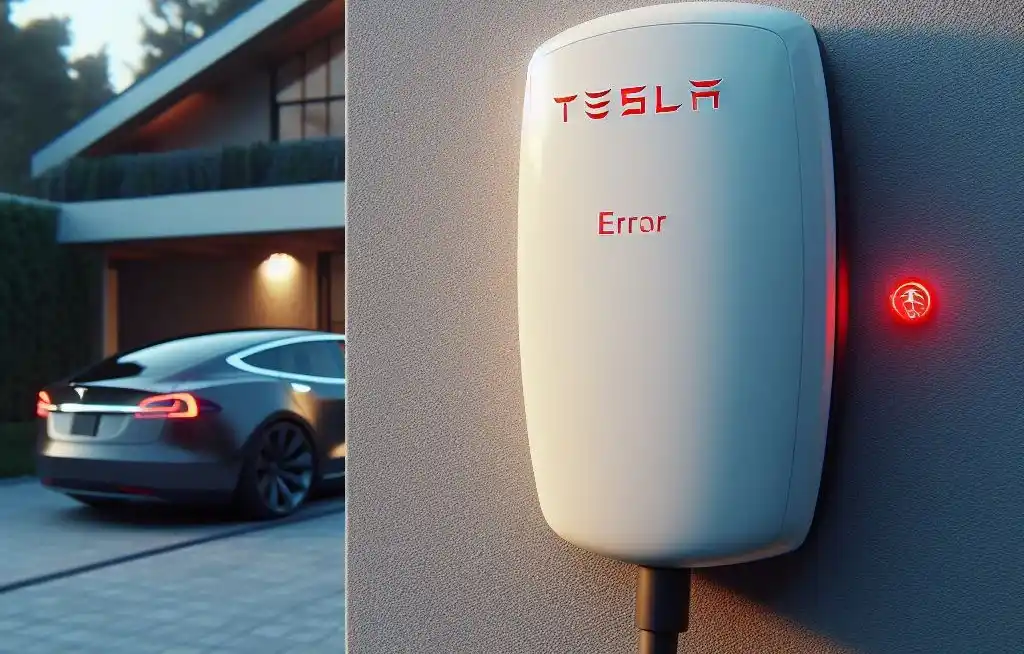
Tesla offers two main charging options for homeowners – the Mobile Connector and Wall Connector:
Mobile Connector
- Included with all new Tesla vehicles
- Provides up to 44 mph charging speed
- Supports up to 60A / 240V
Wall Connector
- Optional $500+ accessory
- Provides up to 44 mph charging
- Supports up to 60A / 240V
The outputs and charging speeds are very similar between the mobile connector and wall connector when using 240V. So what are the differences and which is better?
Here is an overview of the pros and cons of each Tesla home charging option:
Mobile Connector Benefits
- Cost – Included with car, no added cost ($550 value)
- Portable – Easy to take with you and charge anywhere
- Compact size – Much smaller than the wall connector
Mobile Connector Downsides
- No hardwired install – Need to manually plug and unplug
- Trip hazard – Charging cord may pose a safety hazard
- Slower amperage – Max 60A vs Wall Connector 100A potential
Wall Connector Benefits
- Permanent install – Just park and charge, don’t have to plug in
- Higher amperage – Upgrade to 100A circuit for faster charging
- More robust – Sturdier design and connections
- Future-proof – Allows software updates
Wall Connector Downsides
- Higher cost – $500+ for the connector itself
- Professional install – Typically requires hiring an electrician
- Not portable – Only works as a permanent home charger
So in summary – the Mobile Connector offers flexibility and cost savings, while the Wall Connector provides convenience and maximum charging speed. But what’s the real-world difference in charge times?
Mobile Connector vs Wall Connector Charge Times
With optimal 240V installations and amperages, here is how the Mobile Connector and Wall Connector Tesla charging options compare:
| Charger Type | Power | Miles/Hour | Hours for 100 kWh | Hour Savings |
|---|---|---|---|---|
| Mobile Connector | 9.6 kW | 37 mph | 11.8 hours | 0 hours |
| Wall Connector (60A) | 14.4 kW | 44 mph | 10.6 hours | 1.2 hours |
| Wall Connector (100A) | 24 kW | 75 mph | 6.3 hours | 5.5 hours |
While the baseline 44 mph charging speed is similar between the Mobile Connector and Wall Connector on 60 amp circuits, installing a higher capacity 100 amp circuit for the Wall Connector can cut standard charging times almost in half. This allows you to charge a Model S Long Range battery from 0 to 100% in as little as 6 hours.
However, there is a cost consideration – installing a new 100A circuit and 240V outlet for the Wall Connector can cost $750+ in electrician fees. There is also the $500+ cost for the Wall Connector itself.
Overall, the Mobile Connector offers the best value for flexible and portable charging at 240V speeds up to 37 mph. But for maximum charging speed at home, upgrading to the Wall Connector on a high amperage circuit is worth the investment if you can afford the upfront cost.
Estimating Tesla Charging Costs
A major advantage of electric vehicles is lower fueling costs compared to gas cars. But how much does it cost to charge a Tesla? Here are some ballpark electricity cost estimates:
Based on the average US residential electricity rate of $0.14/kWh, here is what it costs to charge different Tesla models:
| Tesla Model | Battery Size | Cost Per Full Charge |
|---|---|---|
| Model 3 SR+ | 50 kWh | $7 |
| Model 3 Long Range | 82 kWh | $11 |
| Model S/X Long Range | 100 kWh | $14 |
With electricity prices around $0.14/kWh, it costs just $7 to charge a Model 3 SR+ from 0 to 100%, or $14 for the largest 100 kWh Model S/X battery pack.
To estimate the electricity costs for your specific Tesla model based on your home electric rate and driving needs, you can use the Tesla Charging Cost Calculator.
Overall, charging a Tesla at home costs just a fraction compared to fueling a comparable gas-powered luxury sedan. Over the life of the vehicle, Tesla owners can save thousands on lowering costs.
Maximizing Range and Efficiency
While Tesla vehicles have market-leading range thanks to their cutting-edge battery tech, there are still several ways you can make the most of your electric driving miles including:
- Smooth acceleration and braking – Aggressive starts and stops drains range. Gentle acceleration maximizes miles.
- Lower speeds – Driving closer to the speed limit boosts efficiency significantly.
- Climate settings – Set to 72°F, turn down the fan speed, and run heated seats instead of cabin heat to save power.
- Tire pressure – Make sure tires are inflated properly to reduce rolling resistance.
- Low weight – Remove unnecessary cargo weight to reduce power consumption.
- Regenerative braking – Set to Standard for maximum energy fed back into the battery when decelerating.
Practicing economical driving habits makes the most of your battery capability allowing you to drive further between charges.
Choosing the Best Home Charger
When it comes to choosing the optimal Tesla home charger setup, considering factors like upfront cost, charging speed needs, available electrical capacity, and ease of installation is important.
Here is a summary of which option typically makes the most sense for different home charging scenarios:
Mobile Connector – Best for apartments, lower capacity electrical, flexible charging needs
Wall Connector 60A – Balances charge speed and cost for most homes
Wall Connector 100A – Ideal for large batteries if extra install costs are affordable
Use our Guide to Choosing the Best Home EV Charger to match the perfect charging station for your home and electric vehicle.
Utilize the Tesla home charging cost calculator to estimate how different charging speeds and electric rates affect your charging costs. Input your actual EV model, electric costs and home charging station power rating to get custom estimates for miles and hours needed to replenish your battery.
Top-Rated Tesla Charging Accessories
Beyond the official Tesla chargers, some handy third-party charging accessories improve home charging experiences:
Jeda USB Hub
Upgrades Model 3/Y central console with fast-charging built-in USB ports for keeping devices powered up on the go.
Cable Organizers
Keep charging cables neatly coiled and untangled with wall-mounted holders. Reduce tripping hazards.
Cable Locks
Deter charger theft and prevent cords from being unplugged with hardened steel locks. Provides charging security.
Maintaining Batteries for Longevity
To maximize battery lifespans and ensure your Tesla keeps charging at optimal rates for many years and hundreds of thousands of miles, follow these battery care best practices:
Daily Charging – Charge daily even if not fully depleted to maintain battery health. Most EVs only need to charge 1-2 times per week, but occasional full discharges help Tesla batteries last longer.
Parking Location – Avoid extended outdoor parking in extremely hot or cold temperatures to prevent accelerated battery degradation. Tesla batteries work optimally from 0°F to 122°F.
Software Updates – Install over-the-air and manual software patches which often include battery monitoring and charging enhancements. Keep batteries performing their best.
Annual Checks – Have Tesla service technicians run diagnostics on battery and charging systems during annual inspections to catch any potential issues early.
Following Tesla’s battery and charging recommendations keeps electrical systems working properly for 300,000+ miles over many years of reliable service.
Troubleshooting Tesla Charging Problems
While Tesla ownership is mostly problem-free, occasional issues can arise even in robust EV technology. Here is how to troubleshoot the most common Tesla charging problems:
Won’t Charge At All
- Check for power to the charge point, reset the circuit breaker if needed
- Try different charge cables, outlet, or charging station
- Make sure the cable firmly plugged into the charge port
- Schedule a service appointment if the issue persists
Slow Charge Times
- Ensure using 240V outlet for much faster AC charging
- Have the electrician inspect the circuit for voltage drops lowering amperage
- Make sure the charge cable gauge supports charger amperage
- Check charge port pins for damage or moisture
Charger Not Operating
- Ensure the charger is plugged into a working GFCI outlet
- Try changing the cable on a different outlet to check for power
- Reset the charger and check for lights indicating operation
- Contact Tesla support for a possible firmware update or fix
Error Codes When Charging
- Note specific charge error codes shown
- Look up the code in the Tesla troubleshooting manual
- This may indicate a hardware issue needing repair from the Tesla service
Having a basic understanding of troubleshooting helps resolve most common charging setbacks quickly to keep your Tesla powered up. Schedule service through the Tesla mobile app for specialized diagnosis and repairs by certified Tesla technicians if hardware replacements or complex software updates are necessary.
Tesla Charging Etiquette
As electric vehicles continue growing in popularity, more public charging stations are installed across the country every year. To avoid conflicts when charging in public, be courteous to fellow EV drivers by following the charging etiquette protocol:
- Only park in designated EV charging spaces when charging
- Charge the vehicle fully then move it promptly when complete
- Be polite in busy charging areas if others are waiting
- Avoid unplugging another vehicle to free up a charger
- Notify station owners about broken equipment or issues
Respecting other EV owners keeps the expanding charging infrastructure accessible and drama-free as electric mobility continues displacing gas cars.
FAQs – Tesla Home Charging Essentials
Q: How long does it take to charge a Tesla at home?
A: Fully charging times range between 11.5 to 11.8 hours from 0-100% depending on battery size when charging on a standard 240V home outlet. Upgrading to higher capacity circuits can reduce charge times by up to 50%.
Q: Can I charge my Tesla from a normal outlet?
A: Yes, you can charge from a normal 120v household outlet in a pinch. But it is extremely slow, providing just 4-5 miles of charge per hour so isn’t recommended for regular overnight charging.
Q: Is it OK to charge Tesla daily?
A: Yes, daily charging is perfectly fine for Tesla batteries, and is encouraged to maintain proper charge levels and maximize battery lifespan compared to letting the battery deplete close to empty between charges.
Q: How much electricity does it cost to charge a Tesla?
A: Based on average electric rates of around $0.14/kWh, charging a Model 3 SR+ from 0 to 100% costs around $7. Up to $14 for larger Model S/X 100 kWh batteries.
Key Takeaways – Charging Your Tesla at Home
- Expect full Tesla charge times ranging between 11.5 hours (50 kWh battery) to 11.8 hours (100 kWh battery) on 240V
- Upgrading amperage for Wall Connectors can reduce times by up to 50%
- Charge costs range from $0.07-0.14 per kWh based on battery size
- Maximize range with conservative acceleration and low speeds
- Consider accessories like wall mounts and locks to improve the experience
- Schedule electrician installation for the fastest convenient home charging
Charging a Tesla at home using a 240V outlet offers the perfect blend of fast daily charging and outstanding convenience. By understanding charge times, and costs and following our optimization tips, enjoy seamless home charging in your Tesla.

